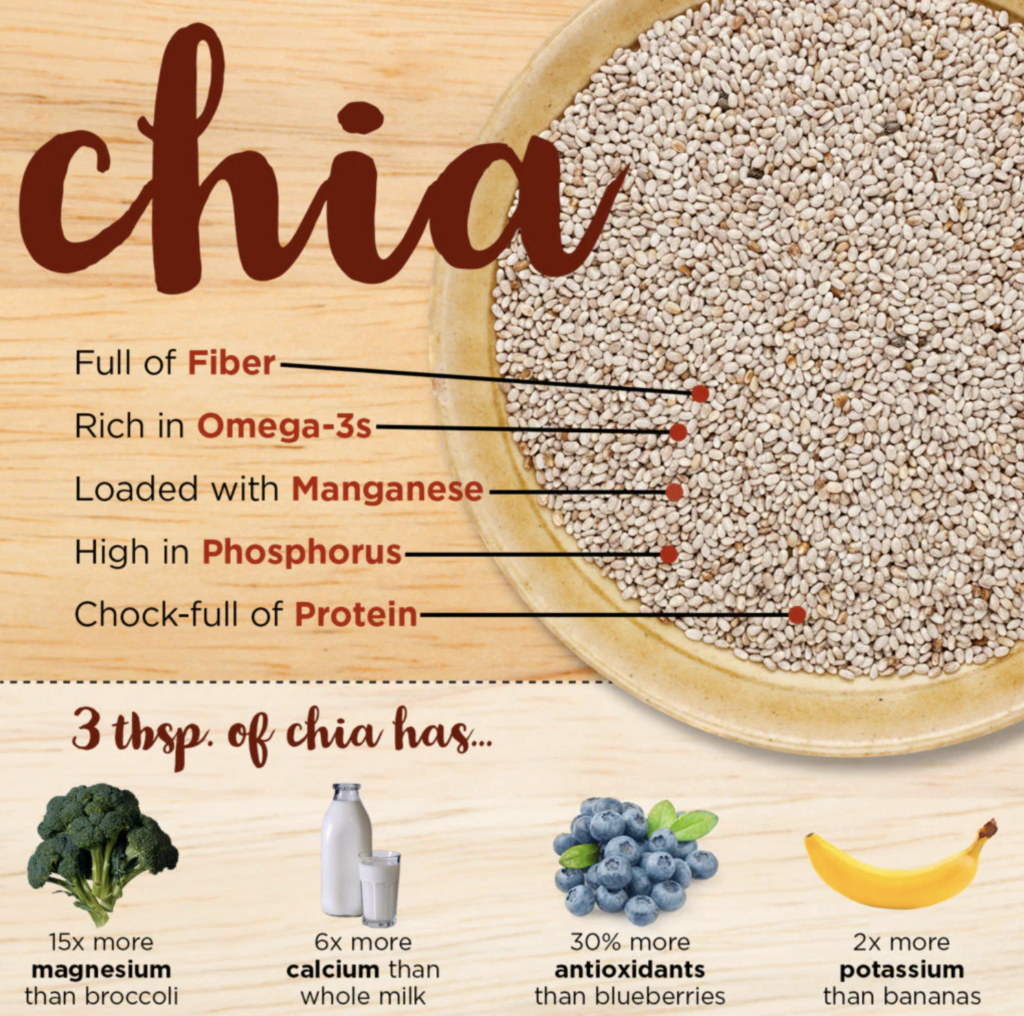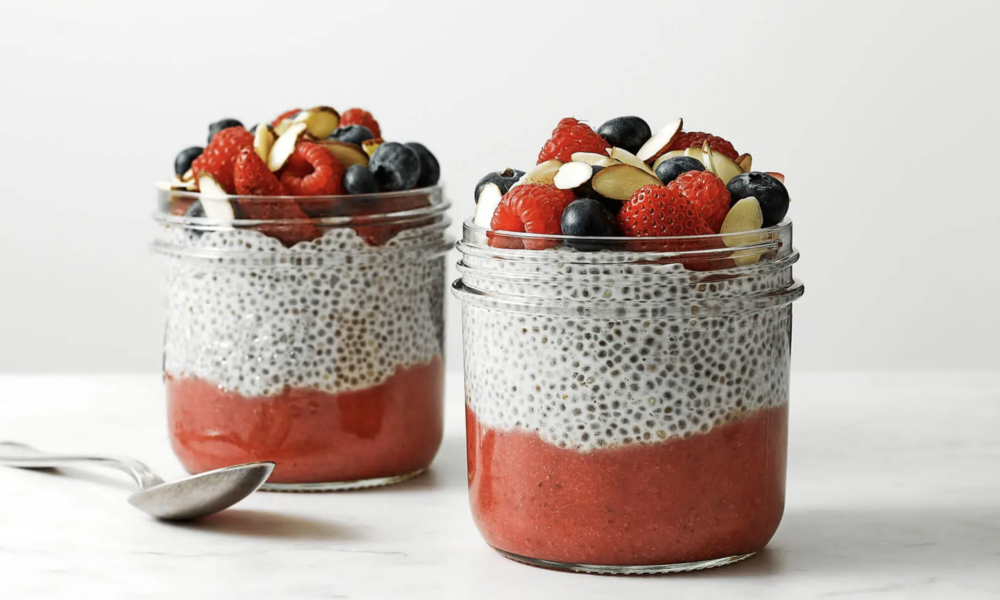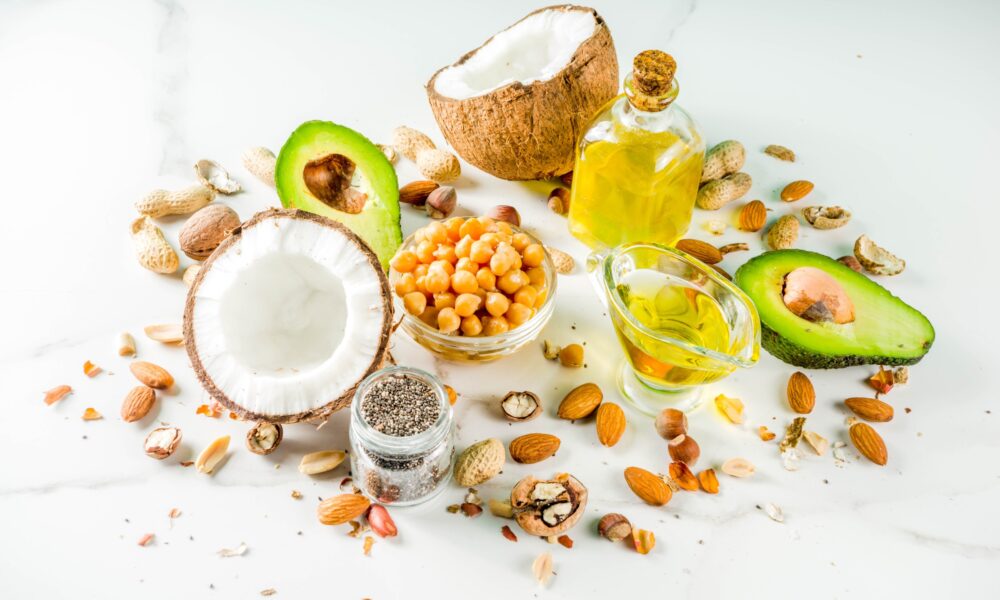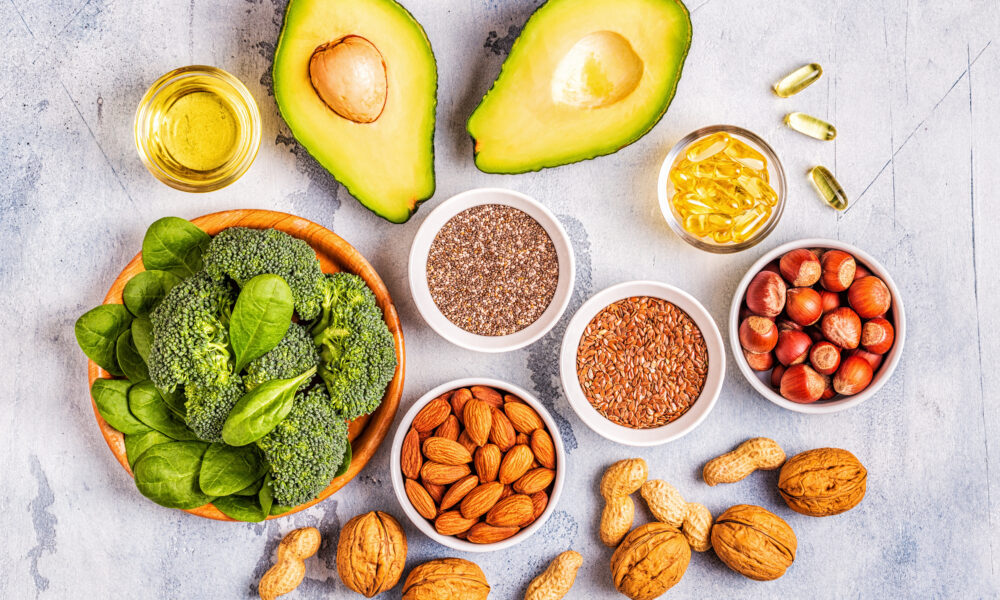- Home
- About
- Portfolio
Crush the Match – Medical School and Residency Platform
Food¢ense – Curbing Childhood Obesity and Food Waste
HealthStack – Shared and Jailed HIPAA Hosting $50
Marta Care – Let Us Help When You Can’t
MD Idea Lab – We Build Prototypes for Doctors
Nervcell – The Healthcare Web Browser
Patient Keto – Personalized Keto Medicine and Telehealth
SwipeChart – Rapid EMR Interface
Treatment Scores – Quantifying the Science of Medicine
Treatments – Diagnosed. Now What?
VIDRIO – Google Glass and EMR Interface
- Blog
- Contact
Category: Vegan and Vegetarians
Harness the Power of Chia Seeds: Essential Fat Source for Vegans and Vegetarians on a Ketogenic Diet
By Stephen Fitzmeyer
Introduction: Following a ketogenic diet with intermittent fasting can present unique challenges for vegans and vegetarians. However, there is an incredibly versatile and nutrient-dense solution that can help bridge the fat gap in their diets—chia seeds. These tiny powerhouses are abundant in healthy fats, making them an indispensable addition for individuals seeking to maintain a balanced and nourishing meal plan. Let’s explore the vital role chia seeds play in providing essential fats for vegans and vegetarians on a ketogenic diet with intermittent fasting.
Rich in Healthy Fats: Chia seeds are a remarkable source of healthy fats, particularly omega-3 fatty acids. These essential fats are crucial for brain health, reducing inflammation, and supporting cardiovascular well-being. By incorporating chia seeds into their meals, vegans and vegetarians can ensure they are meeting their daily fat requirements, which are essential for overall health and vitality.
Promote Ketosis: In a ketogenic diet, the primary energy source shifts from carbohydrates to fats. Chia seeds, with their high fat content and low carbohydrate profile, contribute to achieving and maintaining a state of ketosis. Including chia seeds in a vegan or vegetarian ketogenic diet provides a reliable and convenient way to increase fat intake while minimizing carb consumption, aiding the body in transitioning to a fat-burning metabolic state.
Satiety and Appetite Control: One of the challenges of intermittent fasting is managing hunger and maintaining satiety during fasting periods. The combination of healthy fats and fiber in chia seeds helps promote a feeling of fullness, making them an effective tool for appetite control. The fats in chia seeds are digested slowly, providing sustained energy and reducing the likelihood of cravings or overeating. By incorporating chia seeds into meals or snacks, vegans and vegetarians can support their efforts in adhering to an intermittent fasting schedule.
Versatile and Easy to Include: Chia seeds offer immense versatility in meal preparation, making them an ideal addition to a vegan or vegetarian ketogenic diet. They can be added to smoothies, sprinkled on salads, used as a thickening agent in sauces, or incorporated into baked goods. Their ability to absorb liquids and form a gel-like consistency allows them to adapt to various culinary creations, enhancing both taste and texture.
Nutrient-Rich Profile: Beyond their healthy fat content, chia seeds boast an impressive nutrient profile. They are a notable source of plant-based protein, essential minerals such as calcium, phosphorus, magnesium, and manganese, and dietary fiber. This nutrient combination is especially valuable for vegans and vegetarians who may face challenges in meeting their daily requirements. By integrating chia seeds into their diet, individuals can enhance their overall nutritional intake and ensure they are obtaining a well-rounded range of essential nutrients.
Conclusion: For vegans and vegetarians on a ketogenic diet with intermittent fasting, chia seeds are a nutritional powerhouse that plays a vital role in meeting the necessary fat intake. With their high healthy fat content, chia seeds support ketosis, enhance satiety, and provide a wide array of essential nutrients. By incorporating chia seeds into their meals, vegans and vegetarians can effectively address the challenge of obtaining adequate fats while adhering to their dietary preferences and maintaining the principles of a ketogenic diet with intermittent fasting. Embrace the extraordinary potential of chia seeds and witness the transformative impact they can have on your vegan or vegetarian ketogenic journey.

—
Here are some keto-friendly examples of how to use chia seeds in your daily meals:
- Keto Chia Pudding:
- In a jar, combine 2 tablespoons of chia seeds, 1 cup of unsweetened almond milk (or any non-dairy milk with no added sugars), and a few drops of liquid stevia (or any keto-approved sweetener) to taste.
- Stir well and let it sit in the refrigerator overnight or for at least 4 hours.
- In the morning, give it a good stir and top with a sprinkle of low-carb berries (such as raspberries or blackberries), chopped nuts, or a dollop of coconut cream for added richness.
- Chia Seed Smoothie Booster:
- Add 1 tablespoon of chia seeds to your favorite keto-friendly smoothie recipe.
- Blend until smooth, and the chia seeds will provide added thickness and a boost of healthy fats to your smoothie.
- Keto Chia Seed Pudding Parfait:
- In a jar or glass, layer chia pudding (made with chia seeds, unsweetened almond milk, and keto-friendly sweetener) with a dollop of full-fat coconut yogurt or unsweetened Greek yogurt.
- Top with a sprinkle of crushed nuts, unsweetened coconut flakes, and a few low-carb berries.
- Repeat the layers and create a beautiful and satisfying chia seed pudding parfait.
- Keto Chia Seed Crackers:
- In a bowl, mix 1/4 cup of chia seeds, 1/4 cup of ground flaxseed, 2 tablespoons of coconut flour, 1/2 teaspoon of garlic powder, 1/2 teaspoon of onion powder, 1/4 teaspoon of sea salt, and 1/4 cup of water.
- Let the mixture sit for a few minutes to allow the chia seeds and flaxseed to absorb the water and form a gel-like consistency.
- Spread the mixture evenly on a parchment-lined baking sheet and bake at 350°F (175°C) for about 15-20 minutes, or until the crackers are golden and crispy.
- Allow them to cool before breaking them into crackers.
- Serve the keto chia seed crackers with your favorite low-carb dip or enjoy them on their own as a crunchy snack.
- Keto Chia Seed Breakfast Porridge:
- In a saucepan, combine 2 tablespoons of chia seeds, 2 tablespoons of unsweetened coconut flakes, 1/2 cup of unsweetened almond milk, 1/2 cup of water, and a pinch of cinnamon.
- Cook over medium heat, stirring occasionally, until the mixture thickens and reaches your desired porridge consistency.
- Remove from heat and let it cool for a few minutes.
- Top with sliced almonds, a drizzle of sugar-free syrup or melted coconut oil, and a sprinkle of ground flaxseed or hemp hearts for added crunch and healthy fats.
Remember to adjust the portion sizes and ingredients based on your specific dietary needs and goals on the keto diet. Enjoy these keto-friendly chia seed recipes and explore more possibilities to incorporate this nutritious superfood into your daily keto meal plan.
Author: Stephen Fitzmeyer, M.D.
Physician Informaticist
Founder of Patient Keto
Founder of Warp Core Health
Founder of Jax Code Academy, jaxcode.com
Connect with Dr. Stephen Fitzmeyer:
Twitter: @PatientKeto
LinkedIn: linkedin.com/in/sfitzmeyer/
Essential Fat and Protein Sources for Vegans and Vegetarians on a Keto Diet
By Stephen Fitzmeyer, MD
Introduction: Following a ketogenic diet as a vegan or vegetarian can be challenging, as the focus on high fat and low carb intake requires careful consideration of food choices. However, with a wide range of nutrient-dense options available, it is possible to meet your fat and protein needs while adhering to a plant-based keto lifestyle. In this article, we will explore the best sources of fat and protein for vegans and vegetarians, with a special emphasis on keto-friendly choices.
Avocado: Nature’s Creamy Powerhouse (Keto-friendly) Avocado, the beloved green fruit, is not only a keto-friendly option but also a nutritional powerhouse. Packed with healthy monounsaturated fats, avocados provide a rich and creamy texture to dishes. They are also a source of dietary fiber, vitamins, and minerals, making them an excellent addition to a vegan or vegetarian ketogenic diet.
Nuts and Seeds: Crunchy Delights (Keto-friendly) Nuts and seeds are versatile and satisfying options for obtaining both healthy fats and protein. Almonds, walnuts, cashews, chia seeds, flaxseeds, and hemp seeds are all keto-friendly choices. These crunchy delights are not only great for snacking but can also be incorporated into recipes, such as nut butters or as toppings for salads and smoothies.
Nut and Seed Butters: Spreads of Goodness (Keto-friendly) Nut and seed butters, such as peanut butter, almond butter, and tahini, are delectable spreads that offer a generous dose of healthy fats and protein. They can be enjoyed on their own, added to smoothies, used as a dip for vegetables, or incorporated into keto-friendly baking recipes.
Coconut and Coconut Oil: Tropical Treasures (Keto-friendly) Coconut and its derivatives are keto-friendly options that bring a tropical twist to your meals. Coconut meat, coconut oil, and coconut milk are rich in healthy fats and can be used in various keto recipes, from curries to smoothies. Coconut milk, with its creamy texture, can be a great base for vegan ketogenic dishes.
Olive Oil: Liquid Gold (Keto-friendly) Olive oil, a staple in the Mediterranean diet, is a source of heart-healthy monounsaturated fats. It is ideal for cooking or as a dressing for salads and vegetables, adding flavor and healthy fats to your meals.
Plant-Based Oils: A Flavorful Spectrum (Keto-friendly) Other plant-based oils, such as avocado oil, flaxseed oil, and sesame oil, offer a diverse range of flavors and are excellent sources of healthy fats for a vegan or vegetarian keto diet. These oils can be used for sautéing, roasting, and dressing to enhance the taste and nutritional profile of your dishes.
Legumes: Protein Powerhouses While not strictly keto-friendly due to their higher carb content, legumes such as beans, lentils, and chickpeas are still valuable sources of plant-based protein for vegans and vegetarians. They can be included in moderation, considering individual carb limits and dietary preferences.
Tofu and Tempeh: Plant-Based Protein Staples Tofu and tempeh, derived from soybeans, are versatile plant-based protein sources. They can be used in a variety of dishes, including stir-fries, salads, and curries. These options provide protein while keeping carbohydrate intake relatively low, making them suitable for a vegan or vegetarian keto diet.
Seitan: Meaty Texture, Plant-Based Protein Seitan, made from wheat gluten, is a high-protein option for those following a vegan or vegetarian keto diet. With its meaty texture and ability to absorb flavors, seitan is a versatile ingredient that can be used to create delicious and satisfying plant-based dishes.
Quinoa: The Complete Protein Grain Quinoa, though higher in carbs compared to other options, is a complete protein source that contains all essential amino acids. While it should be consumed in moderation on a ketogenic diet, quinoa can be a nutritious addition to a vegan or vegetarian keto meal plan when carefully portioned.
Conclusion: Maintaining a well-rounded vegan or vegetarian ketogenic diet requires careful consideration of fat and protein sources. Fortunately, there is a wide array of options available that cater to these needs. Avocado, nuts, seeds, coconut, olive oil, plant-based oils, legumes in moderation, tofu, tempeh, seitan, and quinoa (in limited amounts) offer a range of essential fats and protein for individuals following a plant-based keto lifestyle.
Remember to personalize your food choices according to your specific dietary goals and preferences. Consult with a healthcare professional or registered dietitian to ensure that your nutrient intake aligns with your needs and to optimize your health while following a vegan or vegetarian ketogenic diet. Embrace the diversity of these plant-based options, and enjoy the benefits of a well-balanced and nourishing diet.
Author: Stephen Fitzmeyer, M.D.
Physician Informaticist
Founder of Patient Keto
Founder of Warp Core Health
Founder of Jax Code Academy, jaxcode.com
Connect with Dr. Stephen Fitzmeyer:
Twitter: @PatientKeto
LinkedIn: linkedin.com/in/sfitzmeyer/



